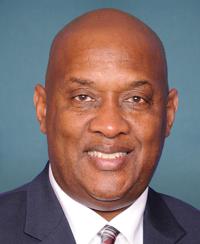H.R. 1743: Undertaking Negotiations on Investment and Trade for Economic Dynamism Act
This bill, known as the "Undertaking Negotiations on Investment and Trade for Economic Dynamism Act," aims to provide the President of the United States with the authority to negotiate and enter into a comprehensive trade agreement with the United Kingdom. Here are the key points of the bill:
Purpose and Goals
The bill expresses the belief that:
- The United States should seek more open trade and investment relations with its allies to strengthen its economy and improve living standards.
- Reducing barriers to trade will foster beneficial economic relationships that enhance the interests of U.S. workers, farmers, and businesses.
- The long-standing relationship between the U.S. and the U.K. presents a unique chance to deepen economic ties and enhance prosperity for both nations.
- A high-quality trade agreement could improve economic prospects, enhance critical supply chain resilience, support collaboration in emerging technologies, and create export opportunities.
- Previous initiatives and agreements have laid a foundation for these negotiations.
- Robust labor and environmental protections in the U.K. help mitigate risks that could undermine U.S. workers and businesses.
- Any trade agreement must respect the Good Friday Agreement, promoting peace and stability in Ireland and Northern Ireland.
- The U.K. is actively seeking to enhance its access to global markets, and the U.S. should do the same to ensure its interests are represented.
Negotiation Authority
The bill grants the President the authority to initiate trade negotiations with the U.K. within 180 days of the bill's enactment, focusing on reducing tariffs and non-tariff barriers across various sectors.
Overview of Trade Agreement Authority
This section outlines the authority given to the President:
- The President can enter into a comprehensive trade agreement addressing trade barriers between the U.S. and the U.K.
- The authority to negotiate this agreement will expire on March 1, 2029.
Provisions for Modifications
The President is allowed to make modifications or continue certain existing duties as necessary to implement the trade agreement. However, there are restrictions on the extent of these modifications, particularly concerning the reduction of tariffs for specific products.
Consultation with Congress
The President is required to consult with Congress throughout the negotiation process and notify Congress of any agreements or proclamations made under the trade authority granted by this bill.
Implementing Bills
When an agreement is reached, implementing bills that approve the trade agreement will be subject to specific procedures and must be submitted to Congress before the expiration of the negotiating authority.
Limitations and Relationship to Previous Trade Legislation
The trade agreement cannot be waived or terminated without Congress's approval, ensuring that existing safeguards and cooperation requirements established by previous trade legislation remain in effect.
Relevant Companies
- BA (Boeing): Boeing may see changes in tariffs and market access for aerospace products due to the trade agreement.
- IBM (International Business Machines Corporation): IBM could benefit from reduced barriers in technology exports and increased collaboration in emerging technologies.
- CAT (Caterpillar Inc.): Changes in trade agreements can affect agricultural and construction equipment exports to the U.K.
- ADM (Archer-Daniels-Midland Company): ADM may experience shifts in agricultural trade regulations impacting its exports to the U.K.
This is an AI-generated summary of the bill text. There may be mistakes.
Sponsors
8 bill sponsors
Actions
2 actions
| Date | Action |
|---|---|
| Feb. 27, 2025 | Introduced in House |
| Feb. 27, 2025 | Referred to the Committee on Ways and Means, and in addition to the Committee on Rules, for a period to be subsequently determined by the Speaker, in each case for consideration of such provisions as fall within the jurisdiction of the committee concerned. |
Corporate Lobbying
0 companies lobbying
None found.
* Note that there can be significant delays in lobbying disclosures, and our data may be incomplete.





































